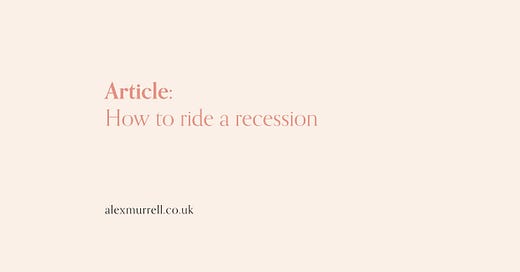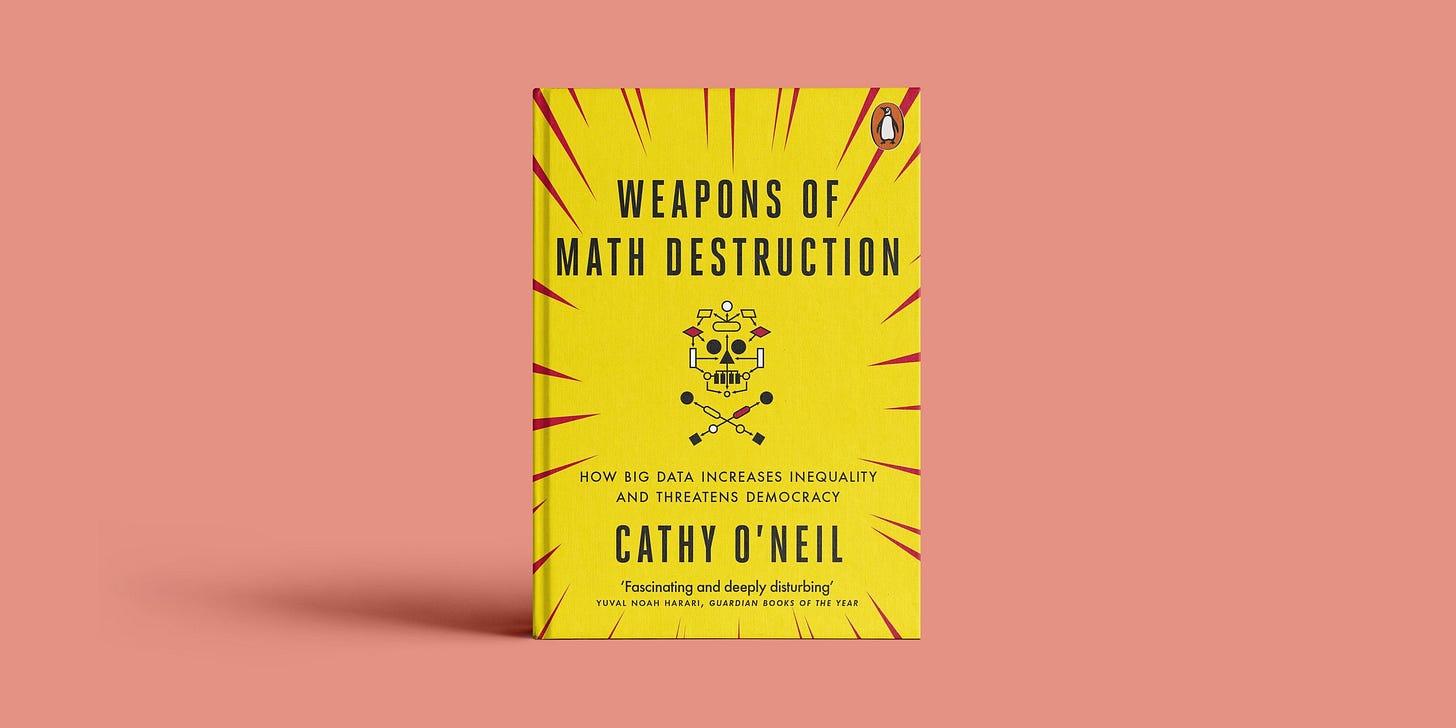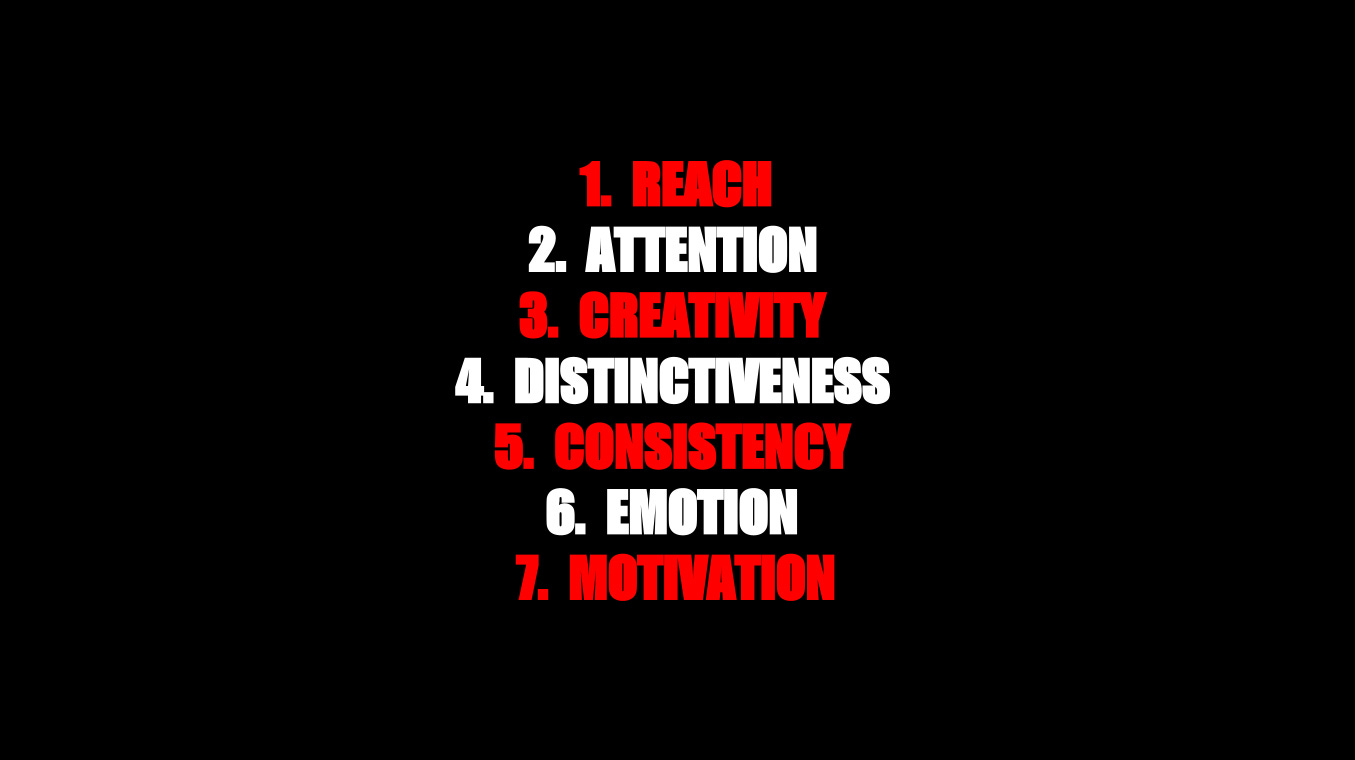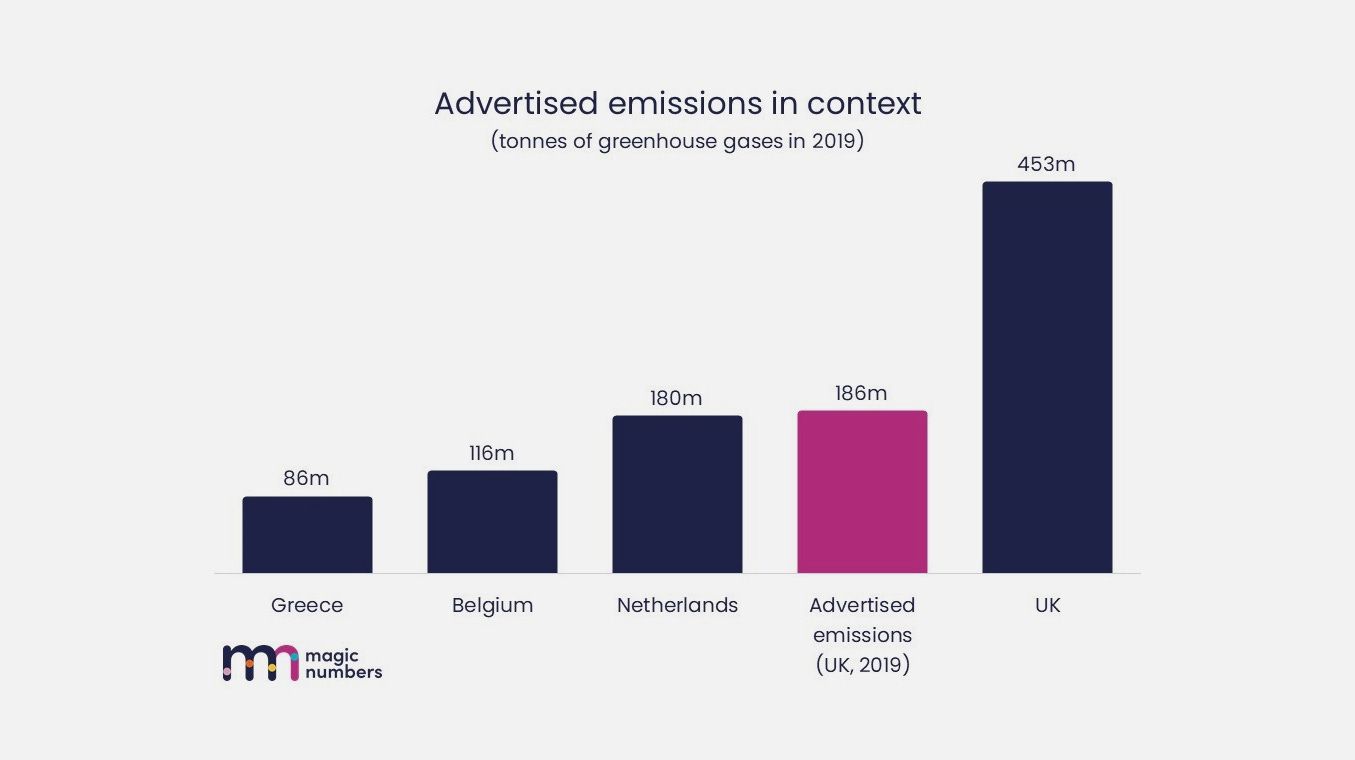Alex Murrell: Edition #005
Welcome
Welcome to Edition #005 of Strategy Made Simple.
This newsletter captures the best of what I've written, recorded and read since the last issue came out in April.
Enjoy.
Articles
I published an article called ‘How to ride a recession’.
Here's a quick TLDR taken from my LinkedIn post:
A storm is coming. In 2020 Britain suffered its deepest recession in over 300 years. Two years later and the economic picture is not much prettier. This article argues that whilst recessions are a threat to some businesses, they are an opportunity for others. It argues that brands can not only survive a downturn but thrive in one. It explores five principles that will help your brand be one that finds strength in the slowdown. The principles will help you increase your dominance during a downturn. They will help you be one of the 9% of companies who come out of the recession stronger than you went in.
An article I published last September titled The Forecasting Fallacy recently had a second wind and is now approaching 10,000 reads!
Summaries
In her book, Weapons of Math Destruction, she expresses concern about the increasing influence of algorithms across a number of fields. I summarised the book here for anyone who is interested.
My site now contains 18 book summaries. The three most popular are:
Links
Here’s some of the best things I’ve read over the last few months.
In a world of change, what won’t?
Tom Roach (ex-BBH and Adam&EveDDB, now Jellyfish) offers seven principles for effective marketing communication that will remain relevant regardless of the changes to technology. Roach’s list includes reach, attention, creativity, distinctiveness, consistency, emotion and motivation. The article digs into each of the seven in turn.
Purpose Disruptors and Magic Numbers launched new research at COP26 that found nearly £90bn worth of products were sold because of advertising in the UK in 2019. That’s the good news. The bad news is that this incremental consumption increases the country’s carbon footprint by 28%. These advertising-generated emissions are equivalent in scale to all greenhouse gases generated by the Netherlands, and about twice those generated by Greece. In related news The IPA launched a new Carbon Calculator that enables media agencies to measure the carbon footprint of the campaigns they plan.
Archive
If you’d like to go back and read previous editions of this newsletter, the first four can be found below:
Over and out
Thank you again for subscribing to this newsletter. If you enjoyed the edition, feel free to share it with anyone who may find it valuable. You can also follow me on social to get more frequent updates. All the links can be found on my website.
As always, please do let me know if you have any feedback. I always love to hear from you.
Until next time,
Alex







